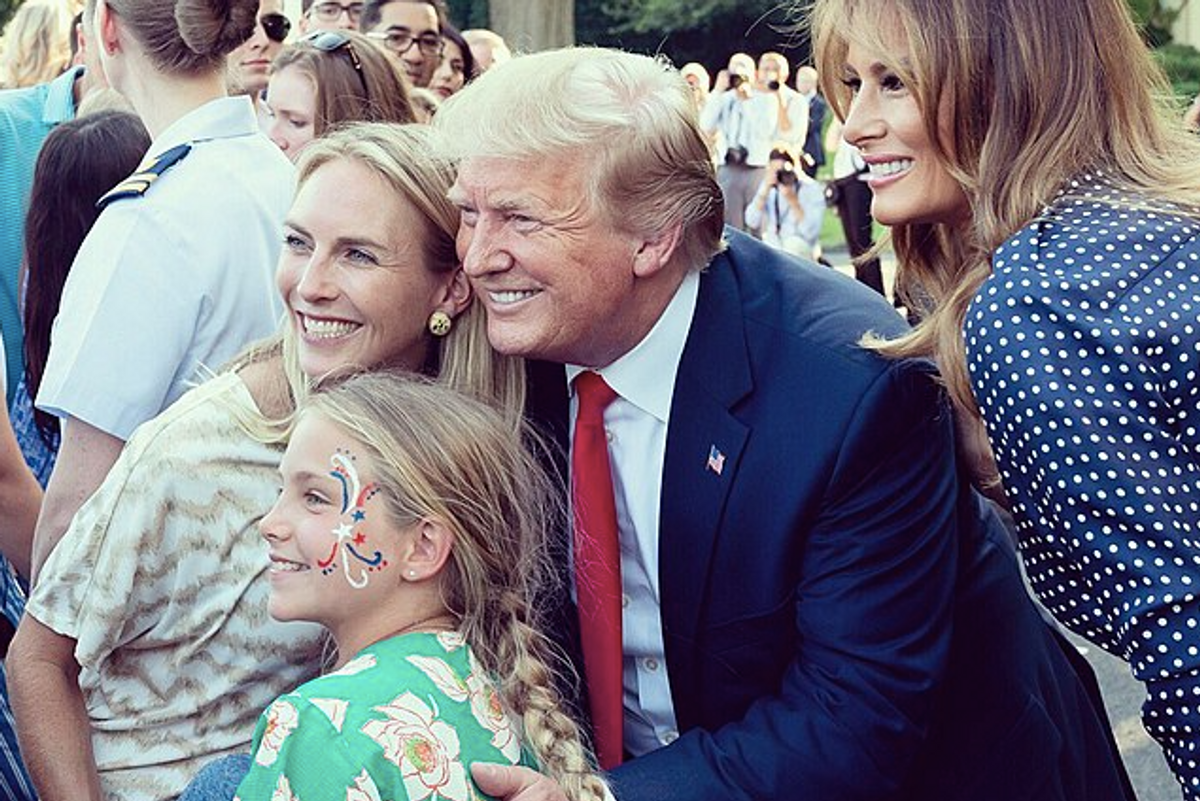Speaking With Historian, Trump Tried To Rewrite His Presidency

Donald Trump
Julian E. Zelizer, a history professor at Princeton University in New Jersey, has been writing a series of books on the United States’ most recent former presidents — and his forthcoming book, “The Presidency of Donald J. Trump: A First Historical Assessment” follows his work on President George W. Bush and President Barack Obama. Zelizer’s Trump book, the historian/author explains in an article published by The Atlantic on April 4, led to a Zoom conversation with Trump during the Summer of 2021.
“As an academic historian, I never expected to find myself in a videoconference with Donald Trump,” Zelizer explains. “But one afternoon last summer — a day after C-SPAN released a poll of historians who ranked him just above Franklin Pierce, Andrew Johnson, and James Buchanan, our country’s worst chief executives — he popped up in a Zoom box and told me and some of my colleagues about the 45th presidency from his point of view…. A few days after The New York Times reported on the project, Trump’s then-aide Jason Miller contacted me to say that the former president wanted to talk to my co-authors and me —something that neither George W. Bush nor Barack Obama had done.”
Zelizer continues, “For someone who claimed indifference about how people in our world viewed him, Trump was spending an inordinate amount of time — more than any ex-president that we know of — trying to influence the narratives being written about him.”
According to Zelizer, Trump was calm during the Zoom conversation.
Nonetheless, Zelizer writes, “If anything, our conversation with the former president underscored common criticisms: that he construed the presidency as a forum to prove his dealmaking prowess; that he sought flattery and believed too much of his own spin; that he dismissed substantive criticism as misinformed, politically motivated, ethically compromised, or otherwise cynical. He demonstrated a limited historical worldview: When praising the virtues of press releases over tweets — because the former are more elegant and lengthier — he sounded as if he himself had discovered that old form of presidential communication. He showed little interest in exploring, or even acknowledging, some of the contradictions and tensions in his record.”
A recurring theme during the Zoom conversation, according to Zelizer, was that “the best and brightest didn’t always know what they were talking about, unlike hardworking people who lived by common sense, as he did.”
“While talking to us,” Zelizer recalls, “Trump was working to influence the narratives that were told about him — as he’d done repeatedly during his time in the Oval Office. Indeed, he had even closed out his term peddling the case that he was not a failed one-term president, like Herbert Hoover or Jimmy Carter, but someone who had victory stolen from him.”
Zelizer also notes that during the Zoom conversation, Trump repeated the claim that the 2020 election was “rigged.”
In fact, the 2020 election was quite secure; widespread voter fraud did not occur as Trump has claimed. And bipartisan recounts in Pennsylvania, Arizona, Georgia, and other battleground states confirmed that now-President Joe Biden won the election fair and square, picking up 306 electoral votes and defeating Trump by more than seven million in the popular vote.
Reprinted with by permission from Alternet.








